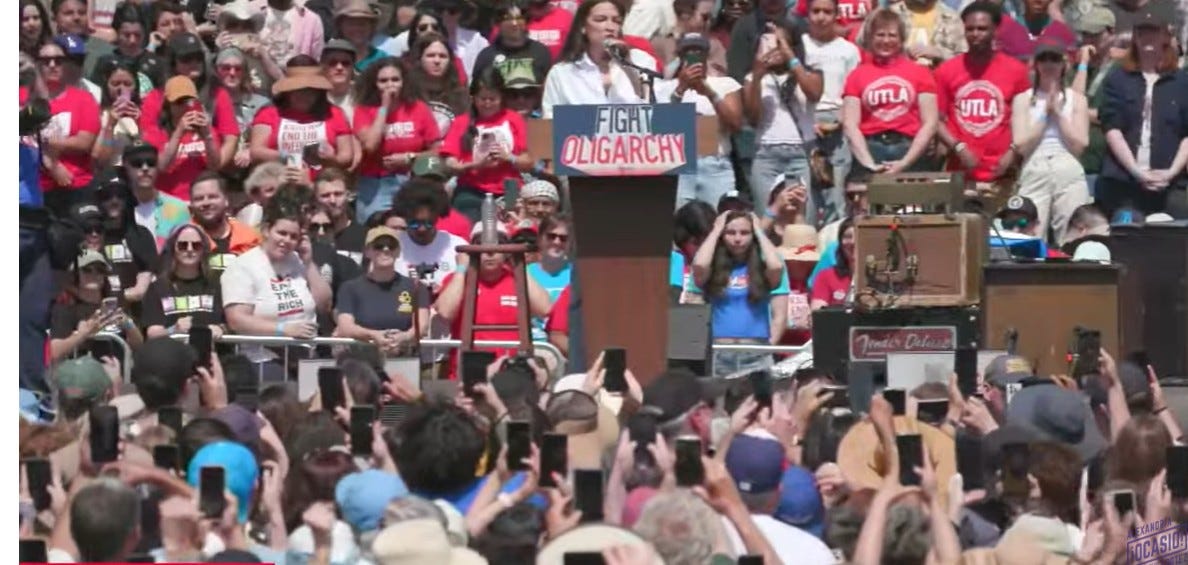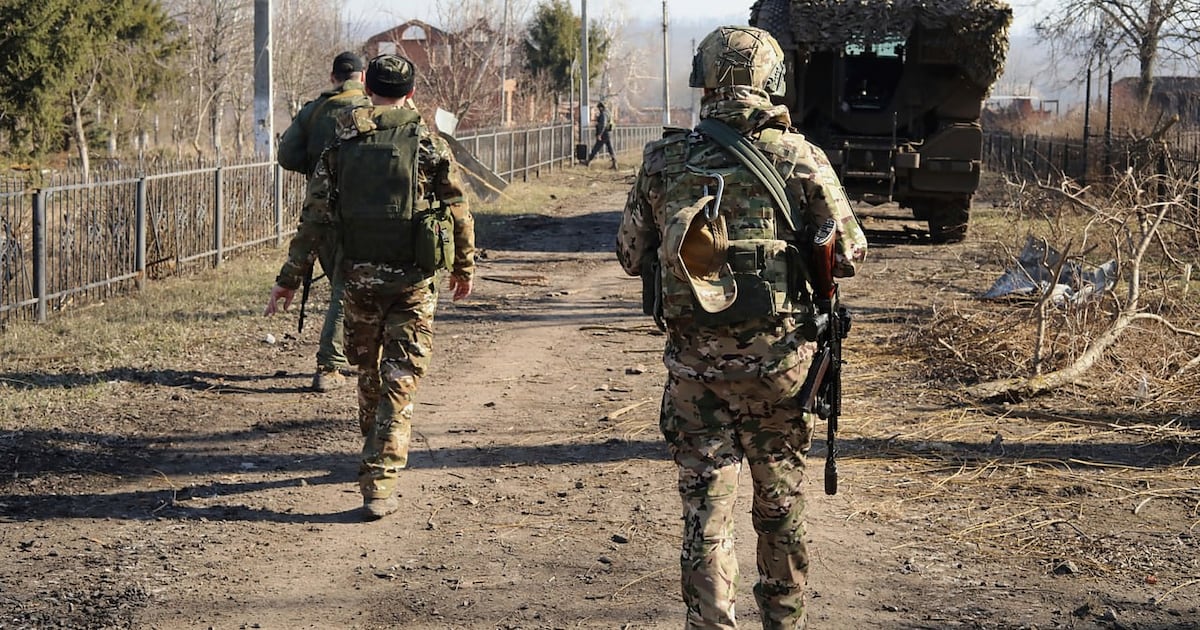Throughout 2024—the so-called “year of elections”—when half the world’s population went to the ballot box, there was a tussle between authoritarianism and democracy that played to a relative draw. Troublingly, one throughline in all the elections has been the growing use of disinformation—false information intended to mislead—by illiberal leaders, both from abroad and increasingly from within democracies themselves.
Vice President J.D. Vance and President Donald Trump’s Oval Office table-turning on Volodymyr Zelensky in February—casting him, not Vladimir Putin, as the obstacle to peace in Ukraine—is just the latest example of the purposeful misdirection and disinformation pedaled by our own elected leaders. Weeks earlier, Vance had stunned European leaders at the Munich Security Conference with his “world upside down” rhetoric, accusing them of being a threat to democracy for guarding against the menace of disinformation campaigns, mainly from Russia.
Russia’s disinformation campaigns target both post-Communist countries (Czechia, Romania) and established democracies like Germany and Austria. Meanwhile, China targets U.S. and Canadian elections with pro-CCP disinformation, and Iran creates fake news outlets to influence American voters.
But as dangerous to democracy as the outside-in authoritarian meddling, perhaps worse (and more disturbing) is the increasing use of disinformation from actors within once-stable democracies. Countries with strong histories of free speech and the free flow of information, like the United Kingdom, saw riots last fall when disinformation about immigrant violence was used to stoke fear. In Germany, the spread of conspiracy theories sparked violent acts, like the attack on the Reichstag and the plot to overthrow the government during the pandemic. Trump won in the U.S. aided by similar disinformation. His ally, Elon Musk, turned Twitter into a propaganda machine, spreading untruths. Trump and allies fabricated and disseminated stories of an influx of immigrant asylum escapees from Haiti eating pets in Ohio—patently false information with no goal but to kindle real fears of immigrants among voters.
Combating disinformation, whether from without or within, is a democratic imperative but challenging. European leaders are alive to the threat of foreign disinformation as they combat the lies and misdirection that are coloring political outcomes daily. Recent elections in Romania were suspended due to clear evidence of Russian manipulation—an attack Vance purposefully “pooh-poohed” in his Munich speech.
To its credit, the EU has long recognized this danger and is working to bolster the resilience of member states against malign influence and disinformation. The European Commission (EC) has actively fought disinformation online, working to improve member nations’ capabilities to detect, analyze, and expose disinformation; strengthening joint responses to disinformation; mobilizing the private sector and raising public awareness through a shared Action Plan on Disinformation; looking to protect and promote meaningful participation of citizens, empowering them to make their choices in the public space freely through a European Democracy Action Plan, and inviting diverse stakeholders to sign the Strengthened Code of Practice on Disinformation. (Action Plans are part of EU governance and policymaking. It is an established term in EU governance. They are packages outlining specific principles, policy goals, and tools for their implementation.)
The EU has also established a legal framework with the Digital Services Act, enabling more control over the content provided by large online platforms and demanding accountability through more content moderation. Combatting foreign disinformation has been a priority for Ursula von der Leyen, the President of the European Commission. Under her leadership, the EC worked to put in place a European democracy shield, an effort likely to continue under a newly appointed set of European Commissioners, “Resistance to foreign interference and disinformation” remains one of seven priorities of the rotating presidency of the Council, which now will be held by Poland.
Most leaders of Western democracies decry the transparent disinformation and election meddling of China, Russia, and Iran. However, within most democracies, there has not been an EU-style organized anti-disinformation effort. In the U.S., there is Trump-led backsliding. Without strong government regulation as in the EU, advocates for aggressively policing disinformation, like Bill Adair, author of “Beyond the Big Lie” and founder of the fact-checking website PolitiFact—call for quixotic solutions—like an increase in voluntary fact-checking and media outlets charging more to run ads from politicians with a demonstrable record of lying. The U.S. can’t and should not copy European regulations whole cloth. U.S. First Amendment speech protections are broader than in other countries. Restrictions such as banning political speech manifestations, words, and gestures (as Germany has done with Nazi manifestations) do not sit well with U.S. free speech norms. However, the need for some policing of the information marketplace is urgent. We are seeing our tech firms opening their information platforms to facilitate disinformation. In an apparent bid toward better relations with the Trump administration, Meta CEO Mark Zuckerburg just got rid of fact-checkers—which will pour gasoline on the disinformation fire. Lies and disinformation being used to shape attitudes—are just as pernicious and in need of sanction as disinformation peddled by Vladimir Putin.
If, as in the words of Supreme Court Justice Louis Brandeis, “sunshine is the best disinfectant,” then naming disinformation by political leaders and their allies for what it is—may be the first step.
The press and policy analysts who operate freely in Western democracies do damage by treating disinformation peddled by leaders—whether it is about vaccines, COVID, fluoride, climate change denial, or anti-immigrant fears and sentiments—as a conventional policy dispute.
We expect our enemies to lie and deceive us to get what they want. We should never tolerate it in our leaders. Disinformation is worse than lying, as the goal is to get us to carry beliefs and engage in actions against our interests. Call it by its name.











